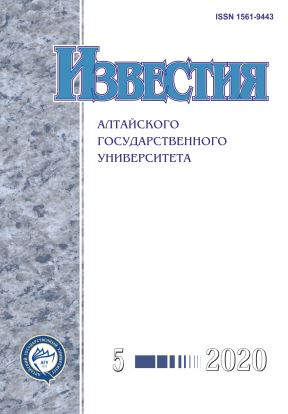Gathering as a Mode of Livelihood for Bashkirs in the Mountainous Forest Area of the Republic of Bashkortostan in the Years of Great Patriotic War
УДК 39+691.11 ББК 63.5+63.3(2)
Abstract
Data in this article are based on the analysis of ethnographic field studies and materials conducted by the author. The study considers gathering as a mode of livelihood of the Bashkirs who inhabited the mountain forests of the Republic of Bashkortostan in the years of the Great Patriotic War. The materials were collected during the period 2010-2019 in Arkhangelsk, Abzelilovskiy, Beloretsk, Burzyanskiy, Belokatayskiy, Baltachevskiy, Mechetlinskiy, Salavatskiy, Duvanskiy districts of the Republic of Bashkortostan. For survival the Bashkirs used the traditional ways of livelihood - fishing, hunting, forestry and gathering. The last one was the most important mode, which provided them with food and served as a cure from different diseases. Typically, the Bashkirs began to collect plants and roots in early spring after cold and grueling winter, as soon as the first greens appeared on the mountains and hills. In summer, villagers collected berries and fruits, in autumn - berries of shrubs, plants and roots. Those roots and plants were consumed both raw and cooked. The collected plants were used for cooking soups, roots - for making flatbreads and porridge, berries - for making pastila and fillings for the pie. Knowledge of the plants helped many Bashkirs to survive their life during the Great Patriotic War. The Bashkirs, having allotments and gardens still like gathering wild berries and fruits.
Downloads
Metrics
References
Муллагулов М.Г. Архаичные способы хозяйства у башкир: традиции и новации. Уфа, 2014.
Муллагулов М.Г. Собирательство и рыболовство у башкир. Уфа, 2007.
Шакирова Н.Ф. Дикорастущие растения в традиционном питании башкир // Этнографическое обозрение. 1988. № 3.
Мигранова Э.В. Башкиры. Традиционная система питания: историко-этнографическое исследование. Уфа, 2016.
Хасанова З.Ф. Традиционные хозяйственные занятия башкир Инзерского бассейна (середина XIX – начало XXI в.). СПб., 2014.
Руденко С.И. Башкиры: историко-этнографические очерки. Уфа, 2006.
Никольский Д.П. Из поездки к лесным башкирам // Землеведение. Т. 2, кн. 4. 1895.
Щеглова Т.К. Собирательство как стратегия выживания и элемент системы жизнеобеспечения сибирской тыловой деревни в повседневных практиках военного времени 1941-1945 годов по устным историческим источникам // Былые годы. Российский исторический журнал. 2015. № 35.
Галиева Ф.Г. Ресурсы мобилизации населения Башкортостана в годы Великой Отечественной войны // Вестник Академии наук Республики Башкортостан. 2020. Т. 35, № 2 (98). DOI: 10.24411/1728-5283-2020-10206.
Башкирия в годы Великой Отечественной войны: сборник документов и материалов. Уфа, 1995.
Izvestiya of Altai State University is a golden publisher, as we allow self-archiving, but most importantly we are fully transparent about your rights.
Authors may present and discuss their findings ahead of publication: at biological or scientific conferences, on preprint servers, in public databases, and in blogs, wikis, tweets, and other informal communication channels.
Izvestiya of Altai State University allows authors to deposit manuscripts (currently under review or those for intended submission to Izvestiya of Altai State University) in non-commercial, pre-print servers such as ArXiv.
Authors who publish with this journal agree to the following terms:
- Authors retain copyright and grant the journal right of first publication with the work simultaneously licensed under a Creative Commons Attribution License (CC BY 4.0) that allows others to share the work with an acknowledgement of the work's authorship and initial publication in this journal.
- Authors are able to enter into separate, additional contractual arrangements for the non-exclusive distribution of the journal's published version of the work (e.g., post it to an institutional repository or publish it in a book), with an acknowledgement of its initial publication in this journal.
- Authors are permitted and encouraged to post their work online (e.g., in institutional repositories or on their website) prior to and during the submission process, as it can lead to productive exchanges, as well as earlier and greater citation of published work (See The Effect of Open Access).








